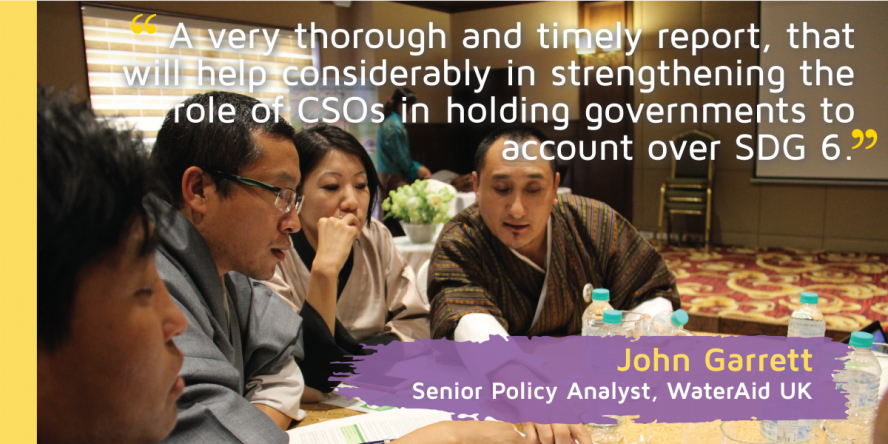New report triggers the setup of accountability platforms #Account4SDG6
Published on: 16/07/2018
Early 2017, at lunch, a colleague asked me if I knew which platforms to use to hold governments accountable for meeting the Sustainable Development Goals (SDGs). I looked puzzled and I answered “I have no idea. I don’t know whom to call or whom to write to here in the Netherlands or in my country of birth, Portugal”.
Many months later there were hundreds of people, organisations and governments from around the world, trying to find the answers to this very simple question. The process involved close to 1,200 people in 25 countries. One of the most interesting findings was that governments could not answer the question either, but by asking the question “whom do we hold responsible?”, we triggered the discussion around setting up accountability platforms.
Last week at the United Nations High-level Political Forum on Sustainable Development (HLPF) saw the launch (#Account4SDG6) of the “Global Review of National Accountability Mechanisms for SDG6”. The study tries to unpack some of the following questions:

Unsurprisingly, one of the key findings is that accountability overall is hindered by a lack of adequate monitoring and reporting on SDG 6. In most surveyed countries data is incomplete or inadequate. If we, as a sector, cannot provide data on progress, we cannot hold anyone accountable. Data is also not disaggregated enough to allow for tracking progress on reaching the most marginalised groups. The recently published UN-Water SDG 6 synthesis report 2018 on water and sanitation comes to the same conclusions.
In our study there are separate recommendations for key stakeholder groups and at the end for each of the participating countries too. I think overall, the most relevant include:
Watch and share this fun animation for a summary of the report's findings and recommendations. Happy readings and looking forward to your feedback.
At IRC we have strong opinions and we value honest and frank discussion, so you won't be surprised to hear that not all the opinions on this site represent our official policy.